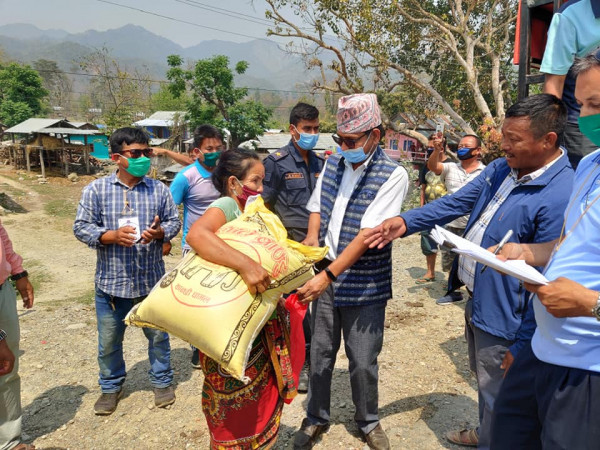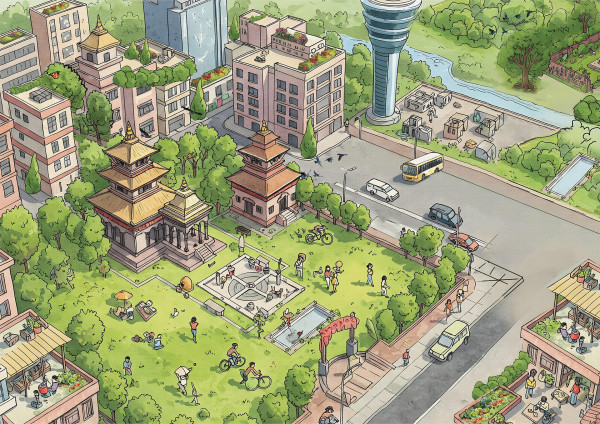Nepal’s Belaka Municipality uses STDM to identify vulnerable families during COVID-19 pandemic

GLTN’s Social Tenure Domain Model (STDM) has acquired a surprising application in the identification of vulnerable households. A case in point is in Nepal where the GLTN in collaboration with UN-Habitat Nepal Country Office, and its local partner Community Self Reliance Centre (CSRC) have been implementing the “Support to Land Reform Initiatives in Nepal” project. The Mayor of Belaka Municipality has used the STDM database of annual agriculture produce status as a baseline information to identify the poor and vulnerable families that have lost their wage earnings due to the government lockdown effected as a measure to contain the spread of COVID-19. These families are targeted to benefit from food relief that is being distributed by the government of Nepal in collaboration with other humanitarian grants. The decision to obtain information from the STDM database for Wards 1 and 3 in Belaka Municipality was arrived at after evaluating the reliability of the data which was revalidated analyzing together with the alternate profession of the Households to be a true indicator of vulnerability. This is because the STDM data under project captures the level of agricultural productivity at the household level and only by using reliable data can the truly deserving households benefit from the food aid. This innovation is a clear reflection of the very huge potential that STDM information sharing can have in combatting the current and any future crises that calls for human geo-spatial data. In Nepal, UN-Habitat and GLTN are providing technical support in the development of the National Land Policy and application of Fit-For-Purpose land tools, specifically the implementation of the land components of the Constitution. Land to the landless and tenure security for all are the basic thrusts of the land policy which is backed by the recent land legislation and the institutionalization of a land commission. This being a long term objectives, the GLTN support has proved effective in delivery of necessary information in supporting the immediate needs e.g. improvement of earthquake recovery, resilience and tenure security for sustainable livelihoods and the emergency relief efforts in COVID-19. News Source: GLTN





